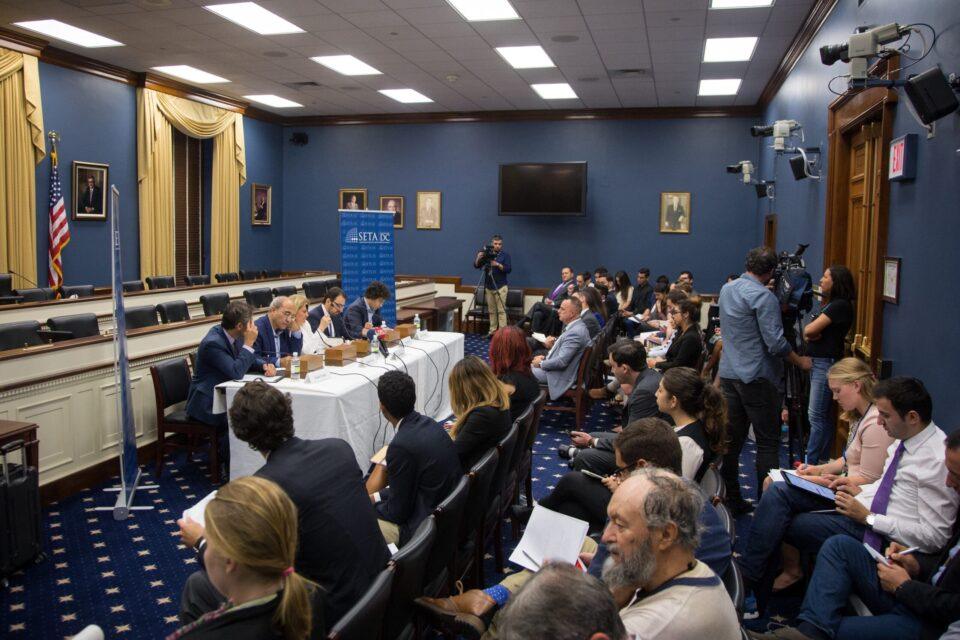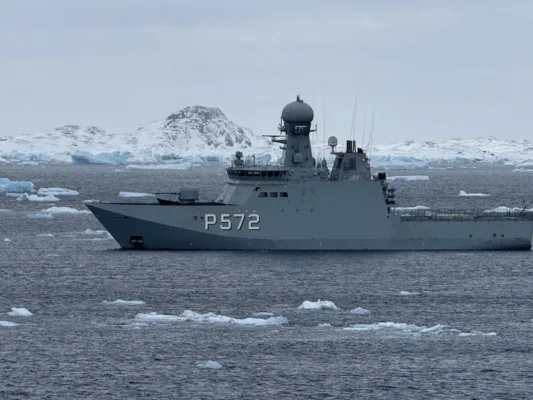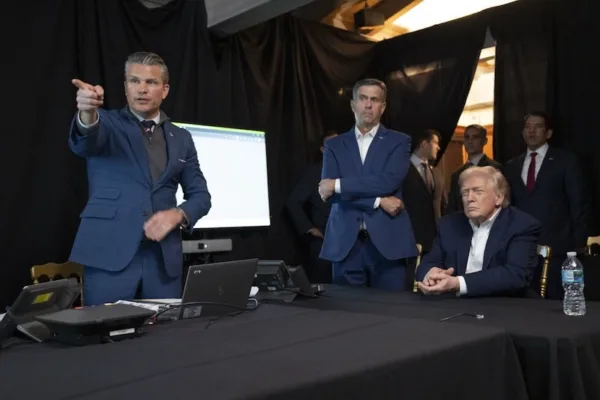“Anniversary of the July 15 Coup Attempt” Panel Event

On July 11, 2017, The SETA Foundation at Washington D.C. hosted a panel event on Capitol Hill entitled, “Anniversary of the July 15 Coup Attempt.” Panelists included Hakan Yavuz, a professor of Political Science at the University of Utah; Nursin Guney, a professor of International Relations at Yildiz Technical University; Talha Kose, a researcher at The SETA Foundation; and Kadir Ustun, the Executive Director of The SETA Foundation at Washington D.C. The panel was moderated by Kilic B. Kanat, the Research Director at The SETA Foundation at Washington D.C.
Hakan Yavuz addressed the four most four common perspectives on the coup attempt of July 15. Yavuz argued that the most likely scenario supported by the most evidence is that the coup was ordered by Fethullah Gulen, organized by civilian members of his organization, and executed by Gulenist networks in the military. Addressing the belief that the coup was not just a Gulenist action, but was instead carried out by a coalition of groups within the military, Yavuz explained that based on the hierarchical and secretive nature of the Gulenist organization, it is unlikely that they would have collaborated with groups such as Kemalists or other factions. As for the two others perspectives that suggest that the coup was either orchestrated by the Turkish government to expand its power or that it allowed it to happen to expand its power, Yavuz offered strong disagreement. Given the AK Party’s strong base of support, using a coup to expand its power is simply unnecessary and risky. Concurrently, Yavuz argued that given how endangered the government was on July 15, it is strange to suggest that it had any prior knowledge or control over the coup itself.
Examining the Gulenist organization, Talha Kose argued that it carries a risk of becoming a transnational challenge, and not just a Turkish issue as many see it now. The coup was the result of 40 years’ worth of organization and preparation. Members of the Gulenist organization see themselves as being chosen to accomplish a mission of changing the world. Kose contended that much of their writing has not been translated into English, which has made it difficult for other nations to understand the threat it poses. It is a hierarchical organization that emphasizes loyalty to the organization and the need to maintain a deception about its purposes.
Nursin Guney discussed how Turkish foreign policy has been affected by regional shifts since the AK Party’s rise to power in the early 2000s. With the spread of conflicts, rise of radical groups, and the fracturing of the Middle East, she argued that soft power has become less effective. Similarly, domestic threats have also expanded in recent years. In turn, Turkey has turned towards a more cautious policy of “defensive neorealism,” seeking to maintain its security. Currently, the top focuses of Turkish foreign policy are to protect its borders and to combat global terrorism. Turkey also is addressing the aftermath of the coup and its effects on Turkish foreign relations, particularly with Western states.
Kadir Ustun briefly covered the history of relations between the AK Party and the Gulenist organization, noting that it is a long and complicated subject. He contended that the struggle that culminated in the coup attempt of July 15 truly began in full swing with the crisis of December 17-25 in 2013. He argued that US-Turkish ties have suffered in recent years in part because it has been hard for the US to understand pre-2013 ties between the AK Party and the Gulenist movement and also because of how difficult it is to address the traumatic impact the coup attempt had on Turkey. Looking at US-Turkish foreign policy, Ustun noted that Syria has been a particularly troublesome issue in the relationship because Turkey and the US view the Syrian conflict quite differently, leading to different tactics and priorities.
Turkey At The Anniversary Of The Coup Attempt





















